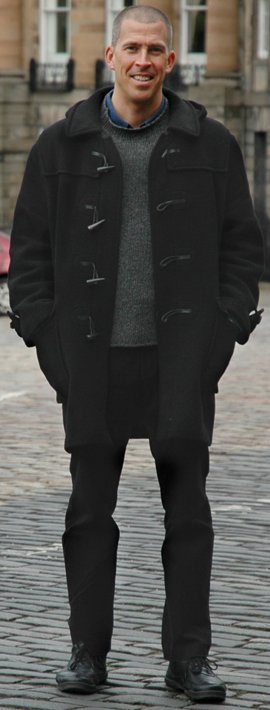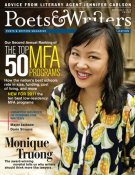For the past year American novelist Thomas Legendre, a graduate of the MFA program at Arizona State University and author of The Burning (Little, Brown, 2006), has worked with British poet Matthew Welton to develop a creative writing program at the University of Nottingham in England. The program, which commences this fall with Legendre and Welton as its sole faculty, will accept six poets and six fiction writers annually and award an MA degree (the equivalent of an MFA in the United States) after the yearlong course of study typical of master's programs in Great Britain. Legendre recently spoke about what makes study in England unique and what writers can gain from attending the new graduate program.

Creative writing programs are now common in the United States, and, to a slightly lesser extent, in Great Britain. Why did you elect to create another one—and how will it be different?
We were able to see how the subject was being taught at a wide range of universities, learning not only what was happening, but also what wasn't happening elsewhere. The result is a program in which students will be reading as much as they are writing—reading as writers. A lot of creative writing departments address the reading process—when they address it at all—by outsourcing it to their English departments. I think that approach unintentionally fosters a division between writing and reading, or creating text and analyzing text, that doesn't do anybody any good.
What do you see as the value of the MA in the United Kingdom—for what future work is it preparing students?
I don't think creative writing programs should be viewed as vocational schools. It's easy to fall into that mentality, given the workshop metaphor and sessions with touring authors and editors. This is a legitimate field of learning no matter what condition the economy happens to be in. What graduates do after they receive their degrees is a separate issue.
But many writers do see writing as a vocation they want to commit to, and some might be looking to a writing program to guide them in creating an integrated life of writing.
I think you've raised a crucial issue. Speaking from my own [MFA] experience, the course structure and social events helped me improve my work and counterbalanced the isolation that comes with writing. Some relationships I developed with classmates have endured for nearly fifteen years. In fact, I ended up marrying [a classmate], and she has turned out to be my first and best reader. That's an extreme example, but my point is that your colleagues can be just as important as your teachers and curriculum. At Nottingham, American students will find a range of classmates from Britain, other European Union countries, and China. If you want to think of it in terms of networking, the word global comes to mind.
Are there any differences you've discovered between the culture of a U.K. program and that of a U.S. program?
First, the degree programs are shorter [in England]. The other difference, related to the first, is that British students are generally more self-directed than their American counterparts, since their schedule doesn't include as many contact hours with teachers. Given these factors, one of our goals is to teach students how to elicit and assess feedback. Let's face it. After graduation you have to conduct your own personal workshops. You have to seek out responses and interpret what readers say in order to revise your work without simply blunting all its edges. This is an absolutely essential skill for a writer: the ability to involve others in your revision process. You have to be not only the author, but also your own editor in chief.
Jean Hartig is the associate editor of Poets & Writers Magazine.








